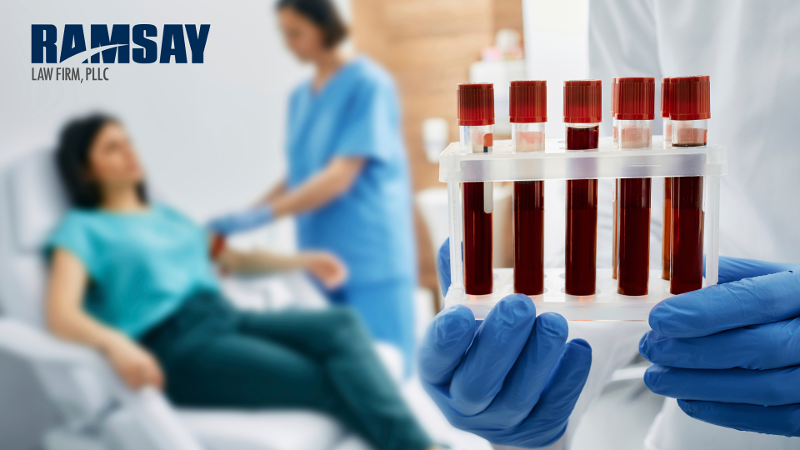Hospital Blood Draws Are Unreliable in DWI Cases

When you're in the hospital, undergoing a blood draw is a standard procedure for various medical tests and diagnoses. However, what many people don't realize is that these blood draws should not be used in DWI cases.
This can be surprising, especially if the blood draw was related to the incident itself, like a DWI arrest. But, there are some major differences between medical and forensic blood draws.
Here are the key reasons why hospital blood draws fall short in forensic cases:
1. Chain of Custody Issues:
- Medical draws: Primarily focused on patient care, meticulous documentation of the sample's journey from patient to lab isn't always prioritized. This "chain of custody" ensures the sample hasn't been tampered with and maintains its integrity.
- Forensic draws: Follow strict protocols to ensure the chain of custody is clear and documented at every step. This includes who drew the blood, how it was stored and transported, and who received it for testing.
2. Use of Contaminants:
- Medical draws: Often use alcohol swabs to clean the injection site. While safe for medical purposes, the presence of alcohol can interfere with certain forensic tests, rendering them unreliable.
- Forensic draws: Use specific non-contaminating solutions to ensure the sample is free from any substances that could alter the results.
3. Different Testing Focus:
- Medical draws: Analyze blood for various medical purposes, often focusing on specific markers or compounds relevant to the patient's diagnosis.
- Forensic draws: Focus on specific substances like drugs or alcohol, requiring specific testing procedures and equipment to ensure accurate results that hold up in court.
4. Different Priorities:
- Medical draws: Uses quick and dirty tests to get results fast.
- Forensic draws: Validated methods must be followed to ensure the compound of interest is analyzed and free from interfering substances.
5. Different Types of Blood are Analyzed:
- Medical draws: Often analyze serum instead of whole blood. Alcohol in serum will be higher than alcohol in whole blood, for example.
- Forensic draws: Whole blood is analyzed. Proper blood draw procedures must be followed to ensure accurate results.
What to Remember:
If you're involved in a situation where a blood draw might be necessary for legal purposes, keep in mind the type of blood draw that is being performed, as there are major differences between the two.
While hospital blood draws play a vital role in healthcare, they have limitations when used for legal purposes due to their focus on speed and efficiency over the stringent protocols required for forensic evidence.
CONTACT RAMSAY LAW
If you’ve had a blood draw and are wondering about the accuracy of your results, reach out to us at Ramsay Law.
At Ramsay Law, we have the only board-certified DWI defense in the state (recognized by the American Bar Association, not the MSBA).
We examine all the evidence to ensure you get the best defense possible.
Call 651-604-0000 to talk with us today.

